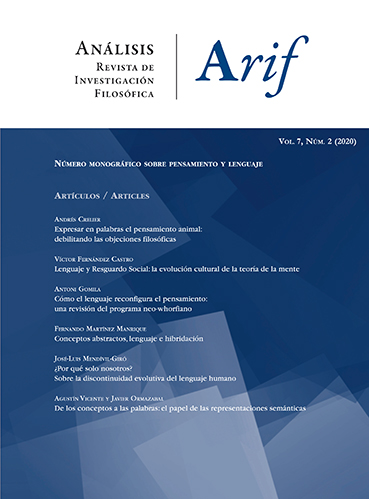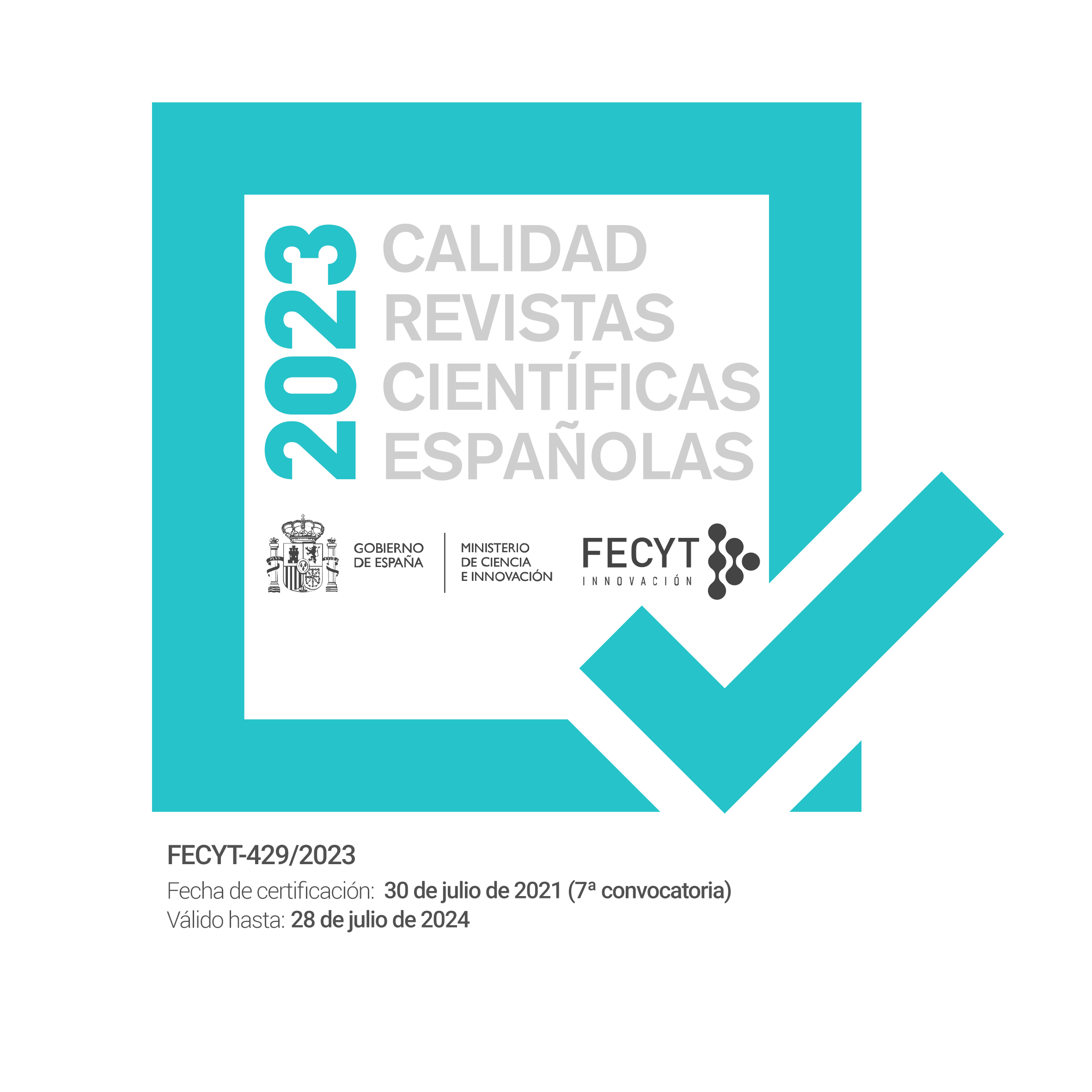How Language reconfigures Thought:
The Neo-whorfian Program Reconsidered
DOI:
https://doi.org/10.26754/ojs_arif/arif.202024952Abstract
The empirical development of the neo-Whorfian programme has been very fertile in the last decade. In this work, I review the most outstanding studies within this programme, and discuss the results, in order to establish the version of the relativistic hypothesis that is vindicated. I argue that the conclusion best supported by the evidence is that language plays a reconfigurational role, transforming previous thinking capacities, in terms of greater abstraction and flexibility. The relativistic effects identified, though, don't support a grand conclusion regarding the importance of the cognitive differences that stem from linguistic differences among speakers of different languages.
Downloads
Downloads
Published
How to Cite
Issue
Section
License
Copyright (c) 2020 Antonio Gomila

This work is licensed under a Creative Commons Attribution-NonCommercial-NoDerivatives 4.0 International License.
Los autores que publican en esta revista están de acuerdo con los siguientes términos: los autores conservan los derechos de autor y garantizan a la revista el derecho de ser la primera publicación del trabajo al igual que licenciado bajo una Creative Commons Reconocimiento-No Comercial-Sin Obra Derivada 4.0 (CC BY-NC-ND) que permite a otros compartir el trabajo con un reconocimiento de la autoría del trabajo y la publicación inicial en esta revista. Los autores pueden establecer por separado acuerdos adicionales para la distribución no exclusiva de la versión de la obra publicada en la revista (por ejemplo, situarlo en un repositorio institucional o publicarlo en un libro), con un reconocimiento de su publicación inicial en esta revista.






